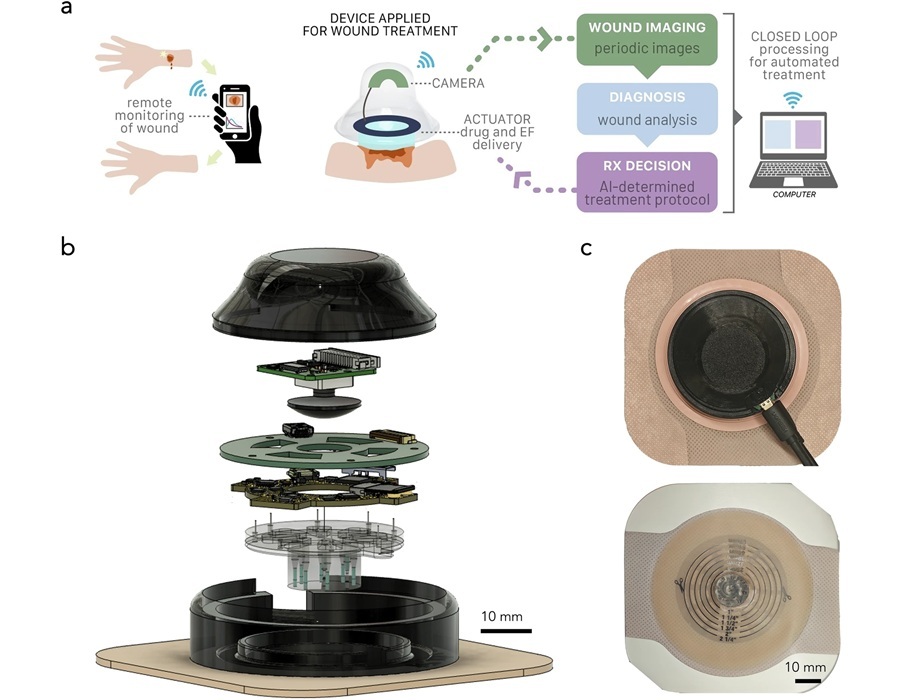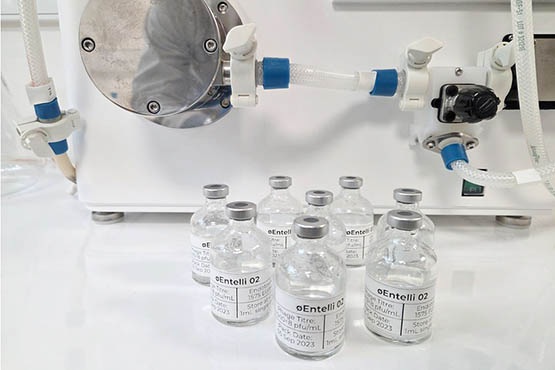Preoperative Metformin May Improve Surgical Outcomes
|
By HospiMedica International staff writers Posted on 29 Apr 2020 |
A new study suggests that preoperative metformin may be associated with decreased postoperative mortality and readmission in type 2 diabetes (T2D) patients.
Researchers at the University of Pittsburgh School of Medicine (Pitt; PA, USA) and the Veterans Affairs Pittsburgh Healthcare System (PA, USA) conducted a retrospective observational study involving 5,460 patients with T2D who underwent a major surgical procedure at one of 15 community and academic hospitals between 2010 and 2016. The main outcomes and measures were all-cause postoperative mortality, hospital readmission within 90 days of discharge, and preoperative inflammation, with or without preoperative metformin.
The results revealed that preoperative metformin was associated with a 3% 90-day mortality risk in the T2D patients who received preoperative metformin, compared to 5% in those who did not; patients in both groups had the same rate of 30-day mortality (2%). In addition, the 30-day readmission rate was also lower in the preoperative metformin group (11%), than in those without (13%). Preoperative inflammation was also reduced in the metformin group, compared to those without, as measured by mean neutrophil to leukocyte ratio. The study was published on April 8, 2020, in JAMA Surgery.
“This study found an association between metformin prescriptions provided to individuals with type 2 diabetes before a major surgical procedure and reduced risk-adjusted mortality and readmission after the operation,” concluded lead author Katherine Reitz, MD, of the PITT department of surgery, and colleagues, suggesting that “adults with comorbidity have less physiological reserve and an increased rate of postoperative mortality and readmission after the stress of a major surgical intervention.”
Metformin belongs to a class of drugs called biguanides, which inhibit the production of glucose in the liver. In addition to suppressing hepatic glucose production, metformin also increases insulin sensitivity, enhances peripheral glucose uptake, decreases insulin-induced suppression of fatty acid oxidation, and decreases absorption of glucose from the gastrointestinal tract.
Related Links:
University of Pittsburgh School of Medicine
Veterans Affairs Pittsburgh Healthcare System
Researchers at the University of Pittsburgh School of Medicine (Pitt; PA, USA) and the Veterans Affairs Pittsburgh Healthcare System (PA, USA) conducted a retrospective observational study involving 5,460 patients with T2D who underwent a major surgical procedure at one of 15 community and academic hospitals between 2010 and 2016. The main outcomes and measures were all-cause postoperative mortality, hospital readmission within 90 days of discharge, and preoperative inflammation, with or without preoperative metformin.
The results revealed that preoperative metformin was associated with a 3% 90-day mortality risk in the T2D patients who received preoperative metformin, compared to 5% in those who did not; patients in both groups had the same rate of 30-day mortality (2%). In addition, the 30-day readmission rate was also lower in the preoperative metformin group (11%), than in those without (13%). Preoperative inflammation was also reduced in the metformin group, compared to those without, as measured by mean neutrophil to leukocyte ratio. The study was published on April 8, 2020, in JAMA Surgery.
“This study found an association between metformin prescriptions provided to individuals with type 2 diabetes before a major surgical procedure and reduced risk-adjusted mortality and readmission after the operation,” concluded lead author Katherine Reitz, MD, of the PITT department of surgery, and colleagues, suggesting that “adults with comorbidity have less physiological reserve and an increased rate of postoperative mortality and readmission after the stress of a major surgical intervention.”
Metformin belongs to a class of drugs called biguanides, which inhibit the production of glucose in the liver. In addition to suppressing hepatic glucose production, metformin also increases insulin sensitivity, enhances peripheral glucose uptake, decreases insulin-induced suppression of fatty acid oxidation, and decreases absorption of glucose from the gastrointestinal tract.
Related Links:
University of Pittsburgh School of Medicine
Veterans Affairs Pittsburgh Healthcare System
Latest Surgical Techniques News
- Robot-Assisted Bronchoscope Diagnoses Tiniest and Hardest to Reach Lung Tumors
- Diamond-Titanium Device Paves Way for Smart Implants that Warn of Disease Progression
- 3D Printable Bio-Active Glass Could Serve as Bone Replacement Material
- Spider-Inspired Magnetic Soft Robots to Perform Minimally Invasive GI Tract Procedures
- Micro Imaging Device Paired with Endoscope Spots Cancers at Earlier Stage
- AI Spine Model Could Reduce Surgical Risks
- Novel Method Uses Interstitial Fluid Flow to Predict Where Brain Tumor Can Grow Next
- World’s First Custom Anterior Cervical Spine Surgery Performed Using Personalized Implant
- Implantable Biodegradable Scaffold Helps Broken Bones Regrow Quickly
- First Human Spinal Cord Repair Using Patient Own Cells Could Cure Paralysis
- 'Dual-Mode' Tracer Enables Surgeons to See and Hear Prostate Cancer
- Pioneering One-Stage Hybrid Surgery Ensures Safer Outcomes in Brain and Spine Tumors
- Reimplanting Lab-Grown Patient Cartilage Accelerates Healing After Hip Surgery
- Diamond-Based Sensor Pinpoints Metastasized Cancer for Surgical Removal
- Minimally Invasive Valve Repair Improves Survival in Elderly AFMR Patients
- Tiny Soft Robots Dissolve Painful Kidney Stones with Targeted Drug Delivery
Channels
Critical Care
view channel
Handheld Sensor Could Replace Blood Tests for Health Monitoring
Dietary assessments today often rely on food diaries and self-reporting, which are prone to inaccuracies, or invasive blood tests that are costly and time-consuming. Detecting nutrient deficiencies, age-related... Read more
3D-Printed Carbon Nanotube Sensors to Enable Smart Health Monitoring
Polymer-based conductive nanocomposites are highly promising for use in wearable electronics and smart health monitoring. However, carbon nanotubes (CNTs) often agglomerate, making uniform dispersion difficult... Read more
Wearable ‘Microscope in a Bandage’ Fastens Wound Healing
Wound healing is a complex biological process that moves through stages, including clotting, immune response, scabbing, and scarring. For many patients, especially those in remote areas or with limited... Read more
Virus Cocktail to Combat Superbugs Offers New Precision Medicine Approach for Hospitals Battling AMR
Antimicrobial resistance is one of the most pressing challenges in modern medicine, making once-treatable infections increasingly lethal. Enterobacter infections, for example, are difficult to treat and... Read morePatient Care
view channel
Revolutionary Automatic IV-Line Flushing Device to Enhance Infusion Care
More than 80% of in-hospital patients receive intravenous (IV) therapy. Every dose of IV medicine delivered in a small volume (<250 mL) infusion bag should be followed by subsequent flushing to ensure... Read more
VR Training Tool Combats Contamination of Portable Medical Equipment
Healthcare-associated infections (HAIs) impact one in every 31 patients, cause nearly 100,000 deaths each year, and cost USD 28.4 billion in direct medical expenses. Notably, up to 75% of these infections... Read more
Portable Biosensor Platform to Reduce Hospital-Acquired Infections
Approximately 4 million patients in the European Union acquire healthcare-associated infections (HAIs) or nosocomial infections each year, with around 37,000 deaths directly resulting from these infections,... Read moreFirst-Of-Its-Kind Portable Germicidal Light Technology Disinfects High-Touch Clinical Surfaces in Seconds
Reducing healthcare-acquired infections (HAIs) remains a pressing issue within global healthcare systems. In the United States alone, 1.7 million patients contract HAIs annually, leading to approximately... Read moreHealth IT
view channel
Printable Molecule-Selective Nanoparticles Enable Mass Production of Wearable Biosensors
The future of medicine is likely to focus on the personalization of healthcare—understanding exactly what an individual requires and delivering the appropriate combination of nutrients, metabolites, and... Read moreBusiness
view channel
Philips and Masimo Partner to Advance Patient Monitoring Measurement Technologies
Royal Philips (Amsterdam, Netherlands) and Masimo (Irvine, California, USA) have renewed their multi-year strategic collaboration, combining Philips’ expertise in patient monitoring with Masimo’s noninvasive... Read more
B. Braun Acquires Digital Microsurgery Company True Digital Surgery
The high-end microsurgery market in neurosurgery, spine, and ENT is undergoing a significant transformation. Traditional analog microscopes are giving way to digital exoscopes, which provide improved visualization,... Read more
CMEF 2025 to Promote Holistic and High-Quality Development of Medical and Health Industry
The 92nd China International Medical Equipment Fair (CMEF 2025) Autumn Exhibition is scheduled to be held from September 26 to 29 at the China Import and Export Fair Complex (Canton Fair Complex) in Guangzhou.... Read more












